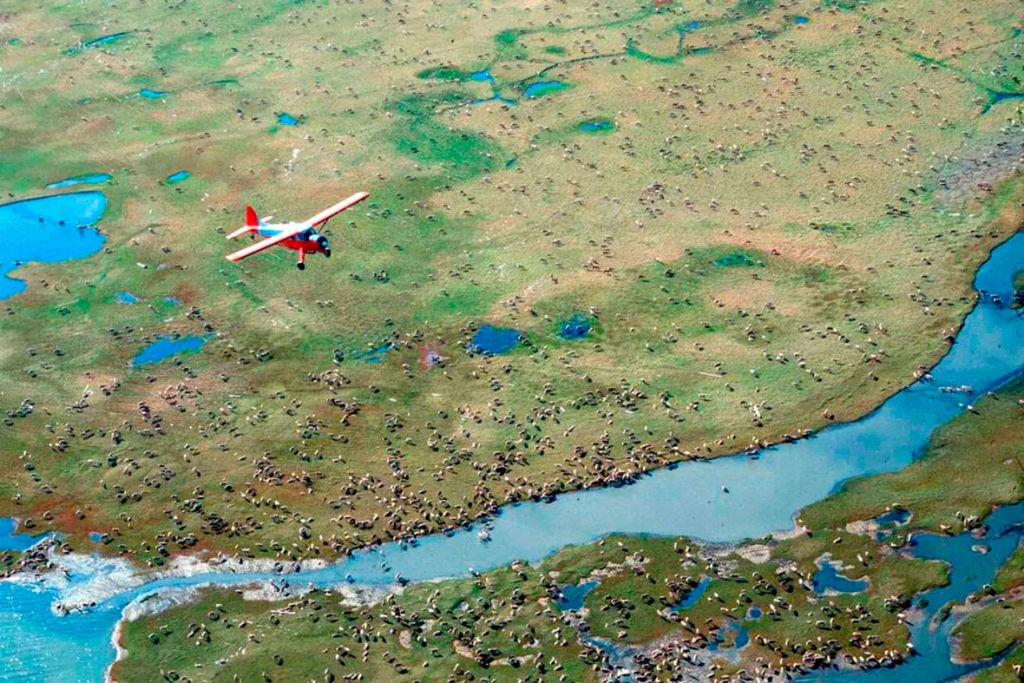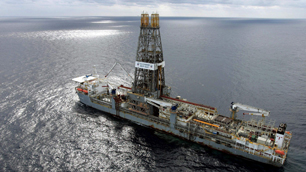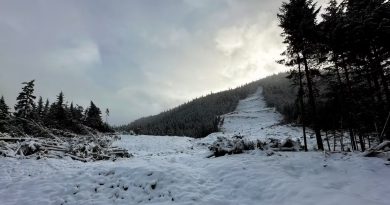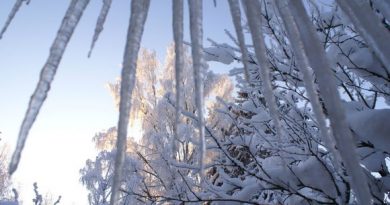Trump Administration approves oil, gas leasing plan for Alaska Wildlife refuge

The Trump administration on Monday took another step to opening Alaska’s Arctic National Wildlife Refuge (ANWR) to drilling for oil and gas, potentially fulfilling a decades-long dream for Republicans.
Environmentalists, however, promised to fight opening up the coast plain of the refuge, a 1.56-million acre swath of land along Alaska’s northern Beaufort Sea coast — home to polar bears, caribou and other wildlife — after the Department of the Interior approved an oil and gas leasing program.
Secretary of the Interior David Bernhardt signed the Record of Decision, which will determine a program for where oil and gas leasing will take place in the refuge’s coastal plain.
President Trump insisted Congress include a mandate providing for leasing in the refuge in a 2017 tax bill.
Over the last four decades, Republicans have attempted to open the refuge to drilling. President Bill Clinton vetoed a Republican bill to allow drilling in 1995, and Democrats blocked a similar plan 10 years later.
The Interior’s Bureau of Land Management in December 2018 concluded drilling could be conducted within the coastal plain area without harming wildlife. The Democratic-controlled U.S. House voted in September 2019 to reinstate the decades-long ban on oil and gas drilling in ANWR.
“Today’s announcement marks a milestone in Alaska’s 40-year journey to responsibly develop our state and our nation’s new energy frontier,” Gov. Mike Dunleavy said in a statement.

The Republican governor called Monday’s decision “a definitive step in the right direction to developing this area’s energy potential,” which he estimated at 4.3 and 11.8 billion barrels of technically recoverable oil reserves.
Republican U.S. Sen. Lisa Murkowski said in a statement that the new opportunity offered by opening the coastal plain “is needed both now, as Alaskans navigate incredibly challenging times, and well into the future as we seek a lasting economic foundation for our state.
“Through this program, we will build on our already-strong record of an increasingly minimal footprint for responsible resource development.”
‘Shameless sell-off’
Environmental groups immediately assailed opening the refuge and promised litigation.
“The Trump administration’s so-called review process for their shameless sell-off of the Arctic Refuge has been a sham from the start. We’ll see them in court,” Lena Moffitt with the Sierra Club’s Our Wild America campaign, said in a statement.
Matt Lee-Ashley, a senior fellow with the Center for American Progress, said the Interior decision won’t stand.
“The environmental analysis underpinning this decision is so laughably indefensible that either the courts or a future presidential administration will have no trouble tossing it in the dustbin of history,” Lee-Ashley said in a statement.

Frank Macchiarola, a senior vice-president at the American Petroleum Institute, said the Interior’s rigorous environmental review process confirms the industry’s ability to develop responsibly.
8% of refuge open for development
Bernhardt, Secretary of the Interior, said the program should stand up to legal challenges or the whims of future administrations.
The decision makes the entire coastal plan area, or 8 per cent of the 19.3-million-acre refuge, available for oil and gas leasing and potential development.
The plan includes protections for habitat and wildlife, the Interior said. This include no surface occupancy restrictions on
nearly 360,000 acres and operational time limits on 585,400 acres.
Bernhardt said there will be at least two area-wide leasing sales of at least 400,000 acres each. The first will be held before Dec. 22, 2021, and the second by Dec. 22, 2024.
Related stories from around the North:
Canada: Canadian Indigenous leaders ‘losing faith’ in environmental protection amid budget cuts, CBC News
Greenland/Denmark: Greenland and Denmark finalize cooperation agreement on marine pollution response, Eye on the Arctic
Finland: Miners hunting for metals to battery cars threaten Finland’s Sámi reindeer herders’ homeland, Yle News
Iceland: Arctic Science Ministerial postponed to 2021 due to COVID-19, Eye on the Arctic
Norway: Climate change hits back at Svalbard, coal mine flooded by melting glacier in Norway, The Independent Barents Observer
Russia: Russia to remove dangerous nuclear objects dumped on its Arctic sea floor, The Independent Barents Observer
Sweden: Extra billions to SAS – but with stricter climate requirements, Radio Sweden



